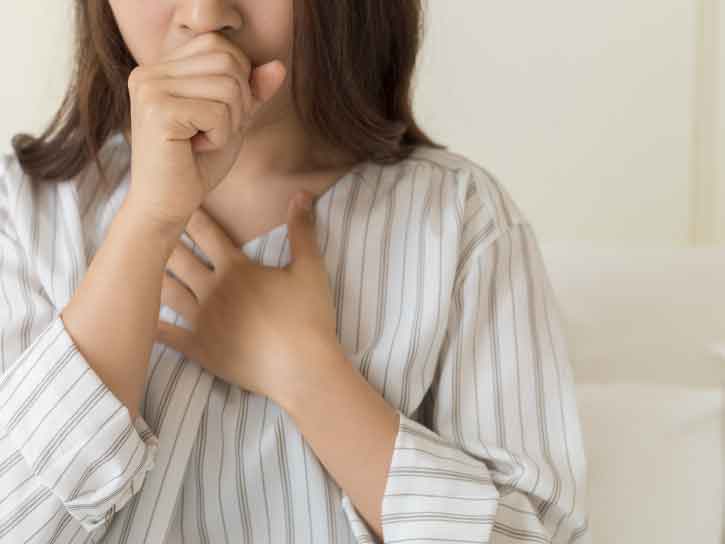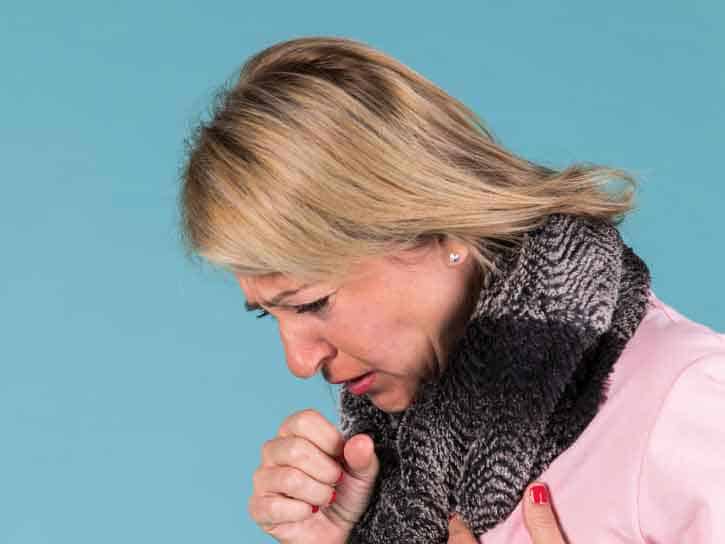The ins and outs of pneumonia
The ins and outs of pneumonia

What is pneumonia?
There’s been an incredible amount of talk about respiratory illnesses in the past year or so (COVID-19 being the big one!). This has resulted in a shift of the spotlight away from other respiratory illnesses such as pneumonia. We think it is important to keep the conversation going around illnesses such as pneumonia, the common cold and the flu because people are still contracting these illnesses in these COVID-19 times.
Hence, today we’re talking about all thing pneumonia. Pneumonia is an inflammation of the lungs caused by a bacterial or viral infection. The air sacs fill with pus making it harder to get the required amount of oxygen into your lungs. You may get inflammation on just one lung, or in both. Having pneumonia can lead to difficulties in breathing which may be both painful and scary.

How common is pneumonia?
Like the flu, pneumonia tends to be more prevalent in winter. It is contagious, so you can become infected by ingesting droplets as they travel through the air (for example, if an infected person sneezes near you). Pneumonia may also be triggered by a cold or flu, taking advantage of an already weakened immune system, and can be caused by viruses, bacteria or fungi.
Worldwide, according to the World Health Organisation, pneumonia is the leading cause of death for children under the age of five. It can affect anyone at any age however, and can be particularly tough for our elderly who take much longer to recover from pneumonia than younger people.
In Australia, the Lung Foundation Australia states that over 77,000 people are hospitalised for pneumonia each year, and that the average hospital stay rises in line with the age of the patient – the older the patient, the more likely they are to require more time in hospital to recover.

What are the signs and symptoms of pneumonia?
Pneumonia symptoms range from mild to severe, depending on a range of things such as the severity of the infection, whether you have any pre-existing conditions already present and your age. Possible symptoms of pneumonia may include:
- Coughing
- Fever
- Sweating or chills
- Difficulty breathing
- Fatigue
- Reduced appetite
- Chest and/or abdominal pain
- Nausea, diarrhoea or vomiting
As always, the best course of action is to consult a GP if you are experiencing any of these symptoms. They will then diagnose your illness to determine if it is pneumonia or something else, and from there determine the best course of treatment to help you on the road to recovery. Your GP can use a range of tests to diagnose pneumonia such as a general examination, a swab of your nose or throat, urine or blood test or a chest x-ray. There are different types of pneumonia too, so your GP will want to determine which type you have (for example bacterial or viral) before prescribing an appropriate course of action.

How can you treat pneumonia?
Once you’ve received your diagnosis of pneumonia from a GP you’ll be given medical advice on how to treat your condition. Once again, we stress that every situation is different and because of this, your treatment plan will be unique to you. But, it could include things such as:
- Antibiotics – for bacterial pneumonia
- Cough medicine – to help you calm your coughing or loosen up fluid.
- Fever or pain relief – to manage your fever and give you a bit of relief from any pain
- Advice around food and water intake – to keep you hydrated and to make sure you are eating well even though you may not have much of an appetite.
For more extreme cases you may require admission to hospital. This could be more likely for those who are older or if you are having trouble breathing.
It is important not to underestimate respiratory illnesses such as pneumonia and to seek medical assistance as soon as you require it. Chances are you won’t feel much like being up and about, so making an appointment for a video consultation is a good first step to get the ball rolling on your diagnosis and recovery.
Sources:
Ausmed, [Pneumonia Symptoms, Signs and Treatment](Sources: Ausmed, Pneumonia Symptoms, Signs and Treatment. https://www.ausmed.com.au/cpd/articles/pneumonia. Accessed May 2021. Lung Foundation Australia, Pneumonia. https://lungfoundation.com.au/patients-carers/living-with-a-lung-disease/other-lung-conditions/pneumonia/. Accessed May 2021. Mayo Clinic, Pneumonia. https://www.mayoclinic.org/diseases-conditions/pneumonia/symptoms-causes/syc-20354204#:~:text=Pneumonia%20is%20an%20infection%20that,and%20fungi%2C%20can%20cause%20pneumonia. Accessed May 2021. World Health Organisation, Pneumonia. https://www.who.int/news-room/fact-sheets/detail/pneumonia. Accessed May 2021.). Accessed May 2021.
Lung Foundation Australia, Pneumonia. Accessed May 2021.
World Health Organisation, Pneumonia. Accessed May 2021.
This website does not provide medical advice. It is intended for informational purposes only. It is not a substitute for professional medical advice, diagnosis or treatment. Never ignore professional medical advice in seeking treatment. If you think you may have a medical emergency, immediately dial Triple 0 (000).